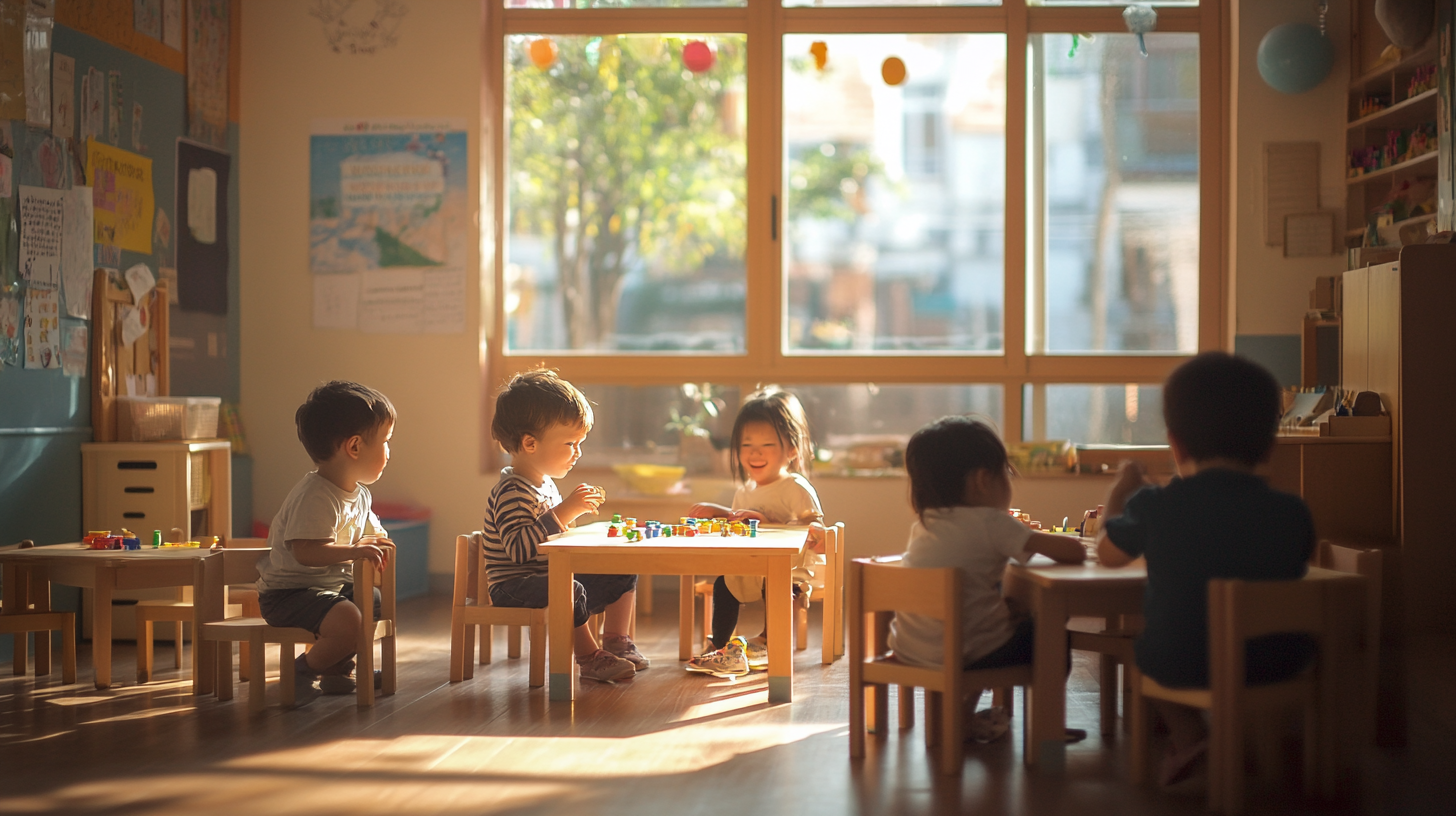When it comes to your child’s early learning experience, there’s one crucial factor that can make all the difference: strong communication between parents and teachers. At Discovery Time Learning Center, we believe in building meaningful partnerships with families, because when caregivers and educators collaborate effectively, children thrive.
Whether your child attends full-time, part-time, or even drop-in daycare, consistent communication helps create a supportive and aligned environment that fosters development. Let’s dive into why parent-teacher communication matters so much, and how to make it stronger than ever.
Why Parent-Teacher Communication Is So Important
Imagine two puzzle pieces, home and daycare, coming together to form a complete picture of your child’s growth. When parents and teachers communicate openly, they share insights, address challenges early, and celebrate progress together. Here’s what that collaboration leads to:
- Consistency: Children feel more secure when routines and expectations are aligned between home and daycare.
- Early Intervention: Concerns about learning, behavior, or development can be addressed more quickly and effectively.
- Trust: Regular updates build mutual respect and confidence.
- Support: Teachers can personalize care, and parents feel more connected to their child’s daily experiences.
In short, when adults around a child are on the same page, that child has a better foundation to grow, learn, and succeed.

Top Tips for Strong Parent-Teacher Communication
Here are practical ways to foster a healthy, ongoing dialogue between families and caregivers.
1. Start with a Strong Introduction
The foundation for any good relationship begins with an introduction. Take the time to meet your child’s teacher early, whether at drop-off, a scheduled meeting, or an open house. A warm hello and a brief chat go a long way in setting the tone.
- Pro tip: Share important information about your child’s routines, likes, dislikes, or any concerns you might have from the start.
2. Use the Tools Offered
Most learning centers now use apps, emails, or even handwritten daily reports to keep parents in the loop. At Discovery Time Learning Center, we ensure families receive timely updates through our preferred communication channels.
- Look for updates on meals, naps, moods, learning activities, and developmental milestones.
- Take a moment to respond or ask questions—it shows you’re engaged and interested.
3. Keep It Two-Way
Communication is not a one-way street. While teachers share what happens at school, parents should also feel free to offer feedback or share what’s going on at home.
- Has your child been having trouble sleeping?
- Are there new foods, books, or toys they’ve taken a liking to?
Sharing this helps teachers better understand and support your child.
4. Attend Parent-Teacher Conferences (Even in Daycare!)
Yes, parent-teacher meetings aren’t just for older kids. Daycare providers often offer scheduled check-ins to discuss progress and goals. These meetings are an ideal time to discuss:
- Developmental milestones
- Social skills
- Behavioral patterns
- Any adjustments needed in care or activities
5. Be Honest, Be Kind
Difficult topics may arise, separation anxiety, biting, delays in speech. It’s essential to approach these discussions with openness and empathy. Remember, everyone’s goal is the same: helping your child grow in a healthy, supportive environment.
- Avoid blame and focus on solutions.
- Ask questions rather than making assumptions.
6. Celebrate the Wins Together
Every new word, skill, or act of kindness is a milestone worth celebrating. Teachers appreciate when parents recognize their efforts, and it strengthens the bond even more.
- A simple “Thank you for your help with potty training” or “We noticed her vocabulary has exploded!” goes a long way.

Overcoming Communication Challenges
Let’s face it: life gets busy. Between work, errands, and parenting, it’s not always easy to maintain steady communication. Here are some tips for staying connected even during hectic weeks:
- Set reminders for weekly check-ins or to review daycare updates.
- Ask for summaries if you miss a report or parent meeting.
- Use drop-off or pick-up times for quick updates if longer chats aren’t feasible.
At Discovery Time Learning Center, we’re always here to work with your schedule and communication preferences.
What Discovery Time Learning Center Does Differently
We pride ourselves on more than just our quality care—we build relationships. Our team understands that open, respectful, and consistent communication with families creates the best environment for children to flourish.
Here’s what sets our approach apart:
- Daily updates through our family communication platform
- Warm, approachable staff who take time to connect with parents
- Flexible scheduling options to accommodate busy families
- Regular developmental assessments and parent-teacher meetings
- Personalized care that adapts as your child grows
Whether you’re with us full-time, part-time, or just stopping by for drop-in care, we prioritize communication that makes you feel informed and empowered.
Conclusion: Strong Partnerships, Happy Children
At the heart of every successful early learning journey is a team effort. Parents and teachers working together not only help children develop academic and social skills—they help children feel loved, understood, and safe.
Strong parent-teacher communication doesn’t require hours of conversation or elaborate plans. It starts with small, consistent gestures: a quick note, a kind word, a question, a thank-you. These add up to a powerful partnership.
If you’re ready to partner with a daycare that values your input, understands your child’s needs, and works with you every step of the way, Discovery Time Learning Center is here for you.
Ready to Experience the Discovery Difference?
Contact Discovery Time Learning Center today to learn more about our full-time, part-time, and drop-in daycare options. We can’t wait to meet your family and begin a lasting partnership that supports your child’s early learning journey.



